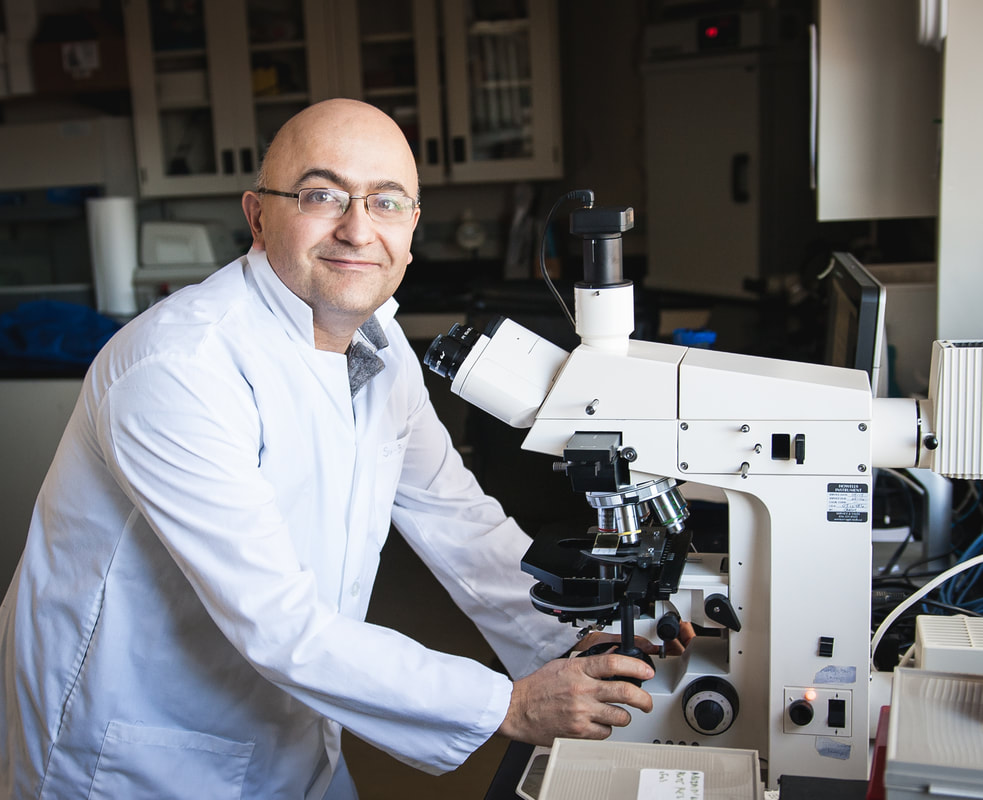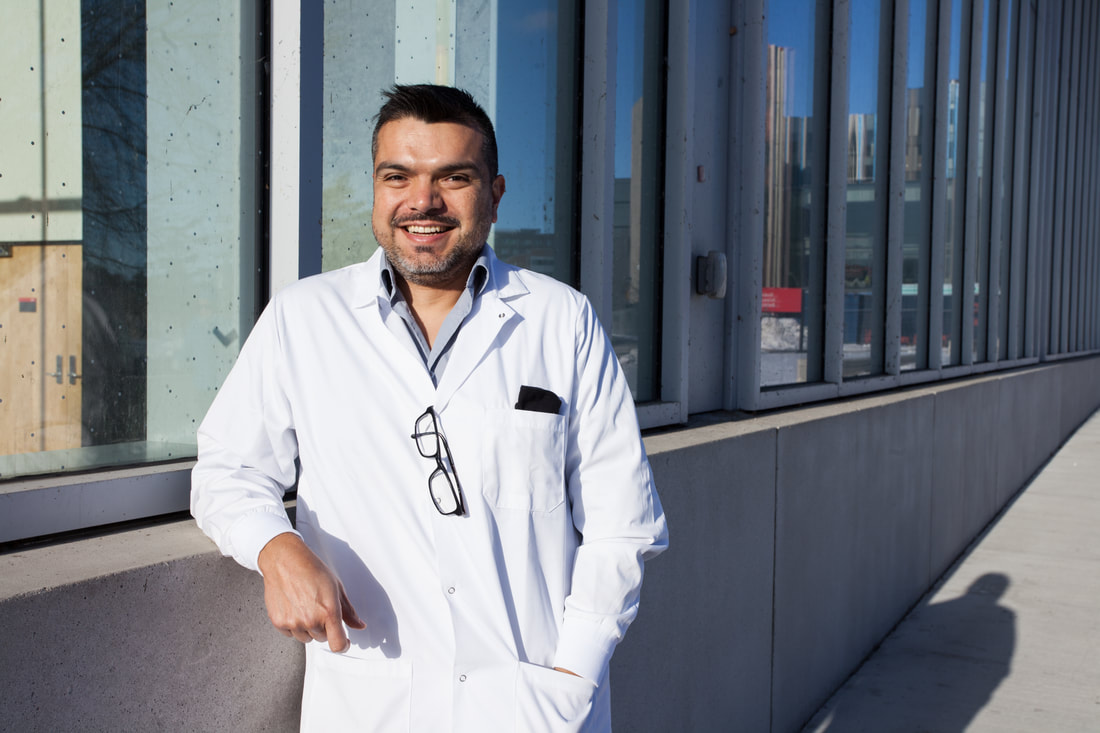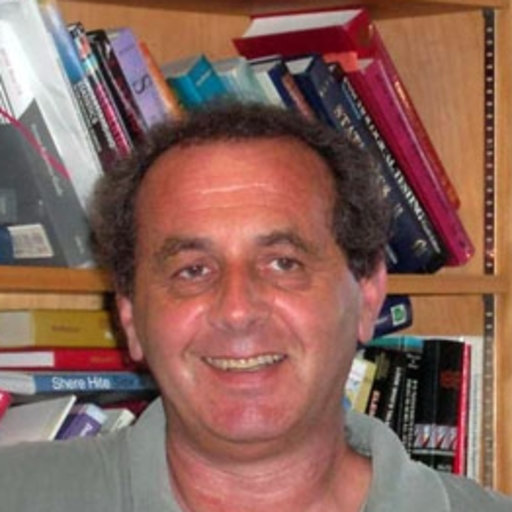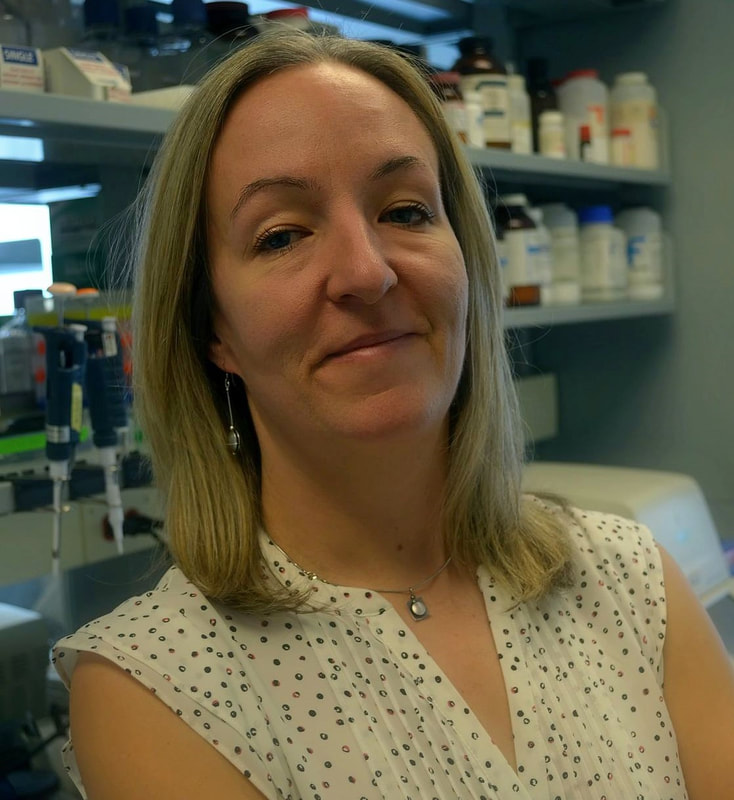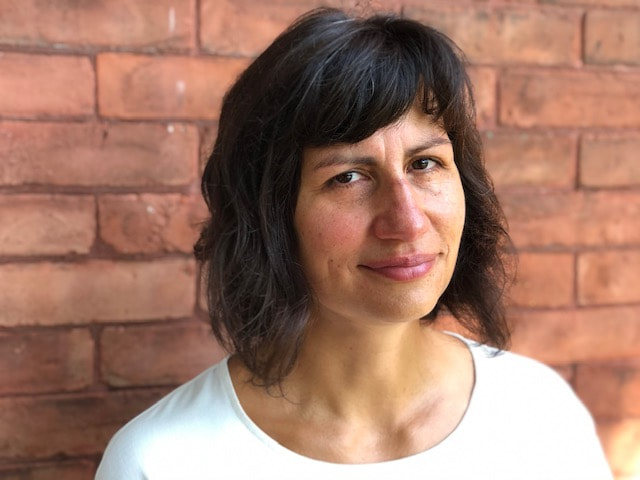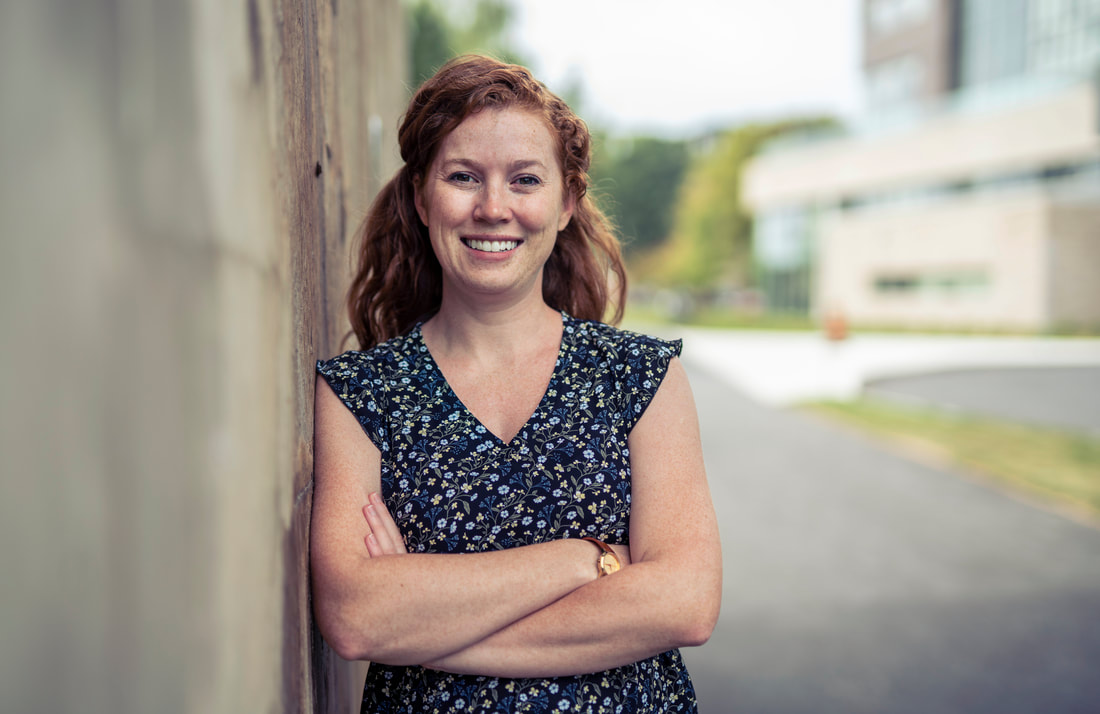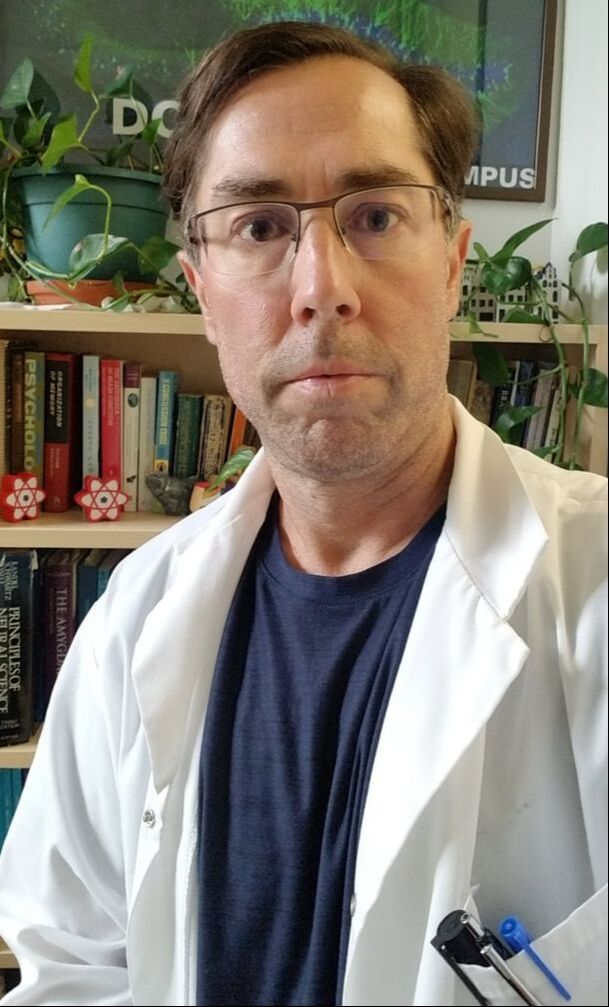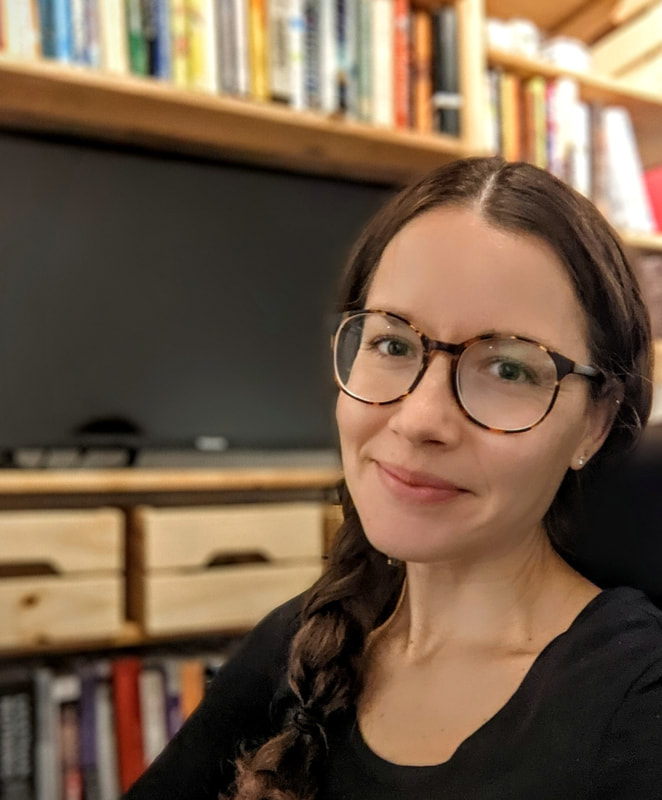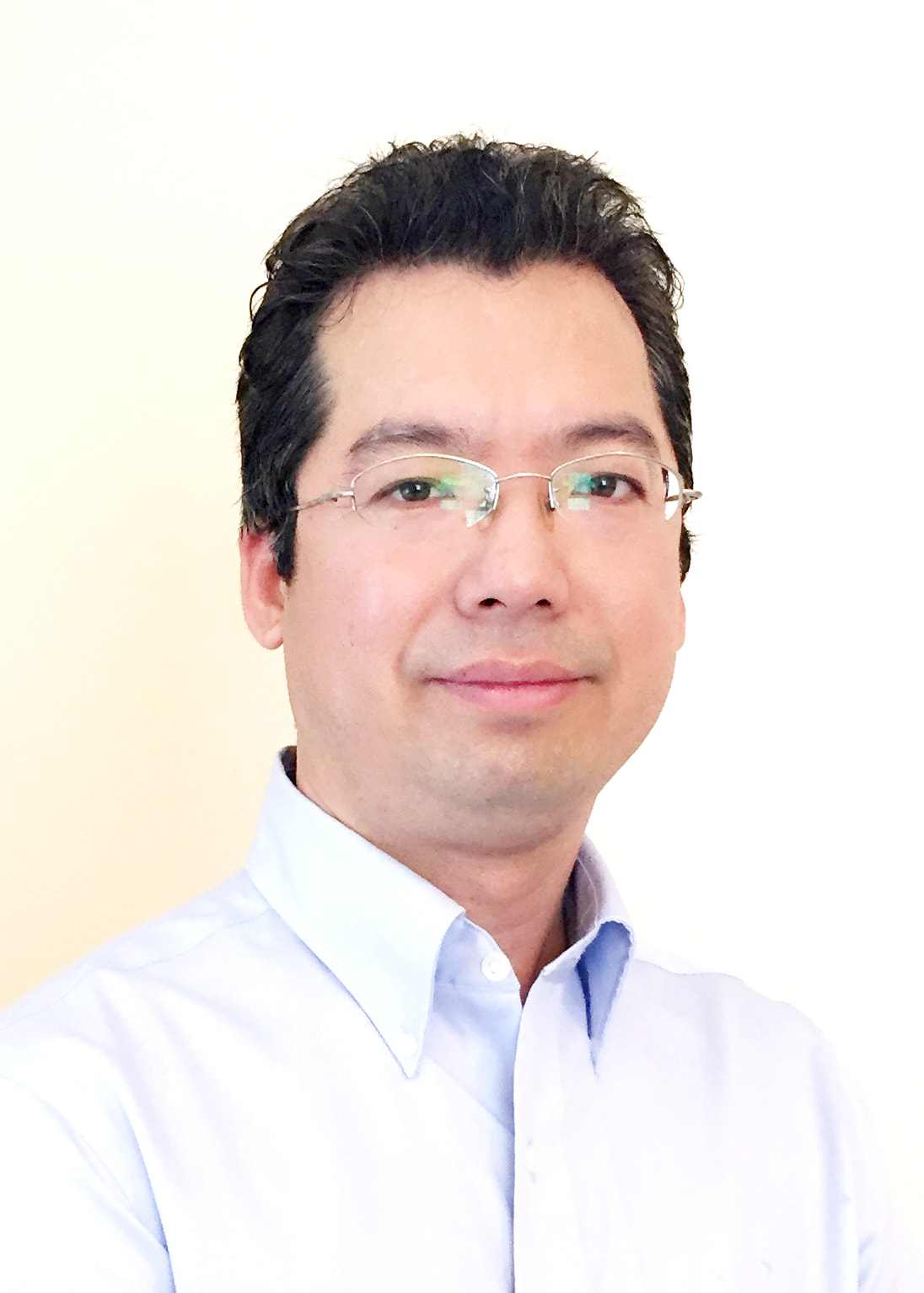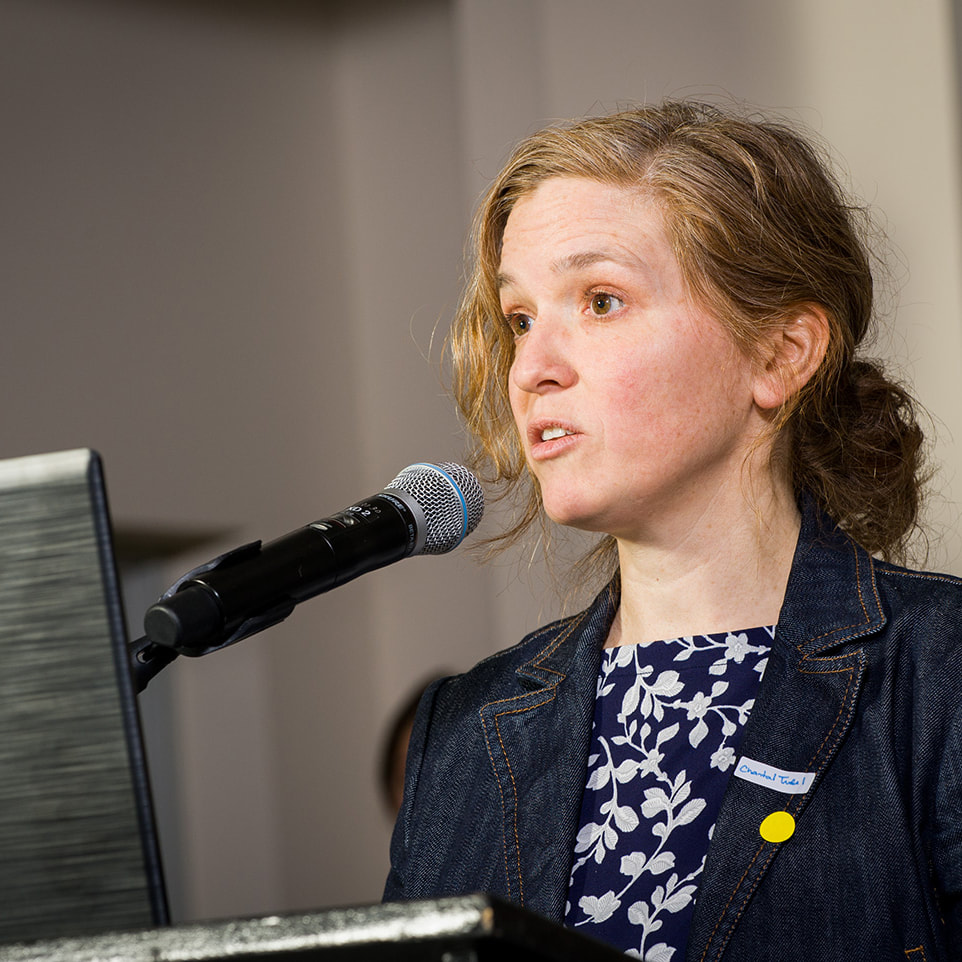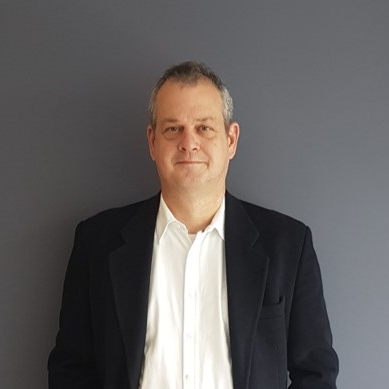Members of the working group are an interdisciplinary team that assess the factors that affect how early experiences set the stage for later pathology and the interventions that can be adopted to prevent this cycle of adverse outcomes. Using a variety of approaches to explore these issues, our members conduct research at multiple levels of analysis to identify the mechanisms responsible for the development of stress-related pathology as well as how to buffer these effects and/or increase resilience. Efforts are ongoing to develop prevention and treatment strategies relevant to stress-related psychological disorders that range from depression, anxiety disorders, PTSD, and suicide, as well as the constellation of physical illnesses, such as obesity, type 2 diabetes, and cardiovascular, infectious and neurodegenerative diseases. Considerable attention is also devoted to the repercussions related to chronic illness and chronic pain.
Alfonso Abizaid
|
I am currently interested on the brain processes that integrate information from the environment to regulate feeding and energy balance. My NSERC funded research is focused on how metabolic hormones like ghrelin influence reward seeking behaviors via actions on the brain systems related to rewards and fears. My CIHR funded research examines how the hormone ghrelin influences feeding as a coping mechanism to mitigate the effects of chronic social stress. I am also interested on how prenatal factors like diet, environmental pollutants, or gestational diabetes influence the development of brain systems implicated in the regulation of feeding and energy balance in their offspring.
|
|
Argel Aguilar-Valles
|
|
I am interested in the molecular mechanisms that underlie psychiatric and neurodevelopmental disorders. I use a combination of biochemistry, molecular biology, neuronal culture electrophysiology, and animal models to understand how genetic risk factors contribute to mental illness. Some of the research questions I am investigating include how genetic mutations affect brain development and autism spectrum disorders (ASDs) pathophysiology and how antidepressant activation of the mTORC1 pathway contributes to major depressive disorder (MDD) treatment.
|
Hymie Anisman
|
My research focuses on the impact of stressful events on neurobiological, immune, and microbial processes and their ultimate effects on both vulnerability and resilience to diverse diseases. These have included anxiety, depression, and PTSD, as well as inflammatory processes that may be tied to a range of physical illnesses (e.g., cancer heart disease). A primary focus of this research has been appreciation of the psychosocial processes that moderate the effects of chronic stressor experiences on illness and wellness. In addition to these lines of research, together with Robyn McQuaid, Amy Bombay, and Kim Matheson, my work has concerned the development of intergenerational and transgenerational actions of severe trauma, most prominently among Indigenous peoples in Canada. Finally, I have been involved in writing books on diverse stress-related processes and outcomes, including texts used in the classroom and for the lay public.
|
|
Marie-Claude Audet
|
|
My current research aims to understand how early-life and adult stressful experiences may come to promote vulnerability to mental illnesses, with a specific focus on the gut microbiome-immune-brain axis (inflammatory signalling routes between the gut environment and the brain that are modulated by gut microbes). A central component of my research involves the development of lifestyle interventions, including dietary interventions and changes in physical activity levels, to prevent and/or attenuate symptoms of mental illnesses, through the modulation of this axis. A major focus of my work is also on the establishment of sex differences in relation to the microbial, inflammatory, and behavioral effects of stressors and of lifestyle interventions.
|
Jenny Bruin
|
My research program aims to better understand the pathogenesis of diabetes, with a focus on insulin-secreting pancreatic beta cells. I am particularly interested in how environmental stressors, such as exposure to pollutants, impact the endocrine pancreas during critical windows of fetal development and periods of metabolic stress in adulthood. My lab uses a diverse range of complementary tools and experimental approaches including mouse models of diabetes and cell-based studies with primary mouse and human islets, immortalized beta cell lines, and human stem cells.
|
|
Melissa Chee
|
|
Obesity is a disease that can result from metabolic stress when calorie intake exceeds energy expenditure. The brain is a critical organ that controls food intake, and while food is necessary for survival, we do not eat only for survival. When, what, or how much we eat can be affected by internal (hunger, hormones) and external factors (nutrients, lifestyle, past experiences). Our research focuses on the role of the brain in obesity by defining the brain circuits that control feeding and then understanding how internal and external factors can regulate food-related behaviors.
|
Sarah Everts
|
I am currently leading a quantitative project to assess the Canadian news media's use of stigmatizing words to describe people who use drugs, from the beginning of the opioid crisis through to the present. My hope is to inspire the news media towards stigma-free coverage of people who use drugs, to develop anti-stigma workshops for journalists, and to help news media craft harm-reduction-inspired style guides.
|
|
Katie Gunnell
|
|
I am interested in understanding the psychological correlates and mechanisms of mental health and behaviour across various populations including youth, adults, and individuals diagnosed with osteoporosis. I examine all aspects of the mental health continuum including ill-being (e.g., symptoms of depression), hedonic well-being (e.g., positive affect), and eudaimonic well-being (e.g., vitality). The behaviours I am interested in understanding include physical activity and recreational screen time (e.g., watching TV, playing video games). In an effort to better understand how to enhance mental health and physical activity and decrease screen time, I am particularly interested in psychological needs (e.g., competence, autonomy, and relatedness) and motivation as mechanisms for change. In a secondary line of research, I am interested in psychometrics and quantitative statistics.
|
Kim Hellemans
|
I am interested in exploring how stress and trauma predict later life mental health vulnerability, with a focus on substance use and addictions. My current research focus is on understanding factors that relate to student mental health, and in particular, how patterns and motivations of cannabis use relate to both mental health symptoms and academic outcomes among university students. I also have significant expertise in knowledge translation and knowledge mobilization and has developed a suite of animations depicting diverse aspects of brain function for the lay public as well as for student use.
|
|
Matthew Holahan
|
|
I currently use various approaches (e.g., vitro cell cultures, ex vivo brain preparations, in vivo animal and human model) to study endogenous and exogenous influences on neural structure and function. My research has focused considerable attention on the impact of traumatic brain injury (TBI) and concussion, including the possible involvement of inflammatory processes in producing neurobiological and behavioral disturbances. My research aims to uncover how memories are stored and become stable, durable, and persistent. This work will help provide the basic knowledge required to address issues of memory enhancement and deficits.
|
Robyn McQuaid
|
My research program examines the impacts of stressors and traumatic experiences on mental health disorders among various populations. One theme of my research examines the neuroendocrine, inflammatory and genetic/epigenetic pathways through which early-life adversity and adult stressors promote depression and comorbid disorders. Another theme, together with Drs. Amy Bombay, Hymie Anisman and Kim Matheson, examines Indigenous wellness and looks at the continued intergenerational impacts of historical traumas on current mental health disparities of Indigenous peoples in Canada. My research program uses various approaches that range from molecular techniques to community-based participatory research and prioritizes the examination of how sociodemographic, psychosocial, and biological correlates of various stressors come together to explain mental illnesses.
|
|
Zul Merali
|
|
I am a Senior Scientist-in-Residence at Carleton and the Director of the Brain and Mind Institute (BMI). BMI's mission is to champion mental health and neuroscience in developing countries. We plan to further our goals through four platforms: Research, Education, Innovation and Implementation, and Engagement. The Institute now includes leading experts, scientists and dynamic new staff who are collectively forming an unprecedented aggregation of talent focused on capacity building in East Africa, through the BMI hub in Nairobi, Kenya, and Central/South Asia, through the BMI hub in Karachi, Pakistan.
|
Zachary Patterson
|
I am interested in the intersection between stress/chronic stress, mental health and problematic substance use. In particular, I research how stress influences motivated behaviors (e.g., feeding, substance use) and the influence of mental health on this relationship. I am also interested in stress-related changes to energy homeostasis and the neurobiological underpinnings of stress related metabolic dysfunction. I am currently involved in a project investigating how the transition to online learning has influenced stress, mental health, help-seeking behavior and academic success in post-secondary students to better understand the impacts of remote learning within this population. I am also currently involved in a project investigating the relationships between cannabis use, stress, social media and mental health in first and second year university students. In particular, we are interested in understanding and defining various patterns of cannabis use, and how these patterns of cannabis use influence stress and mental health outcomes.
|
|
Marylynn Steckley
|
|
My research is broadly situated within socio-cultural and environmental determinants of health, with a focus on food systems. I am specifically interested in the persistent impacts of colonialism on food preferences, food hierarchies and the consequent implications on agro-food productions systems, nutritional quality, and public health. My current CIHR-funded project explores the prospects of a community-based “Food Sovereignty Assessment of Health” in Haiti. This work is aimed, on the one hand, at moving beyond “food security” metrics, which often perpetuate narratives of “scarcity” and “deficits” that can lead to “food dumping” and food aid, and on the other hand, towards tools that illuminate community resources, gendered differences in health and food systems access, and the relationships between agricultural production systems, environmental health, and nutritional well-being.
|
Hongyu Sun
|
I am a neuroscientist. Using a combination of electrophysiological, behavioral, neuroimaging, modeling, and molecular biology techniques, my lab focuses on understanding how early-life experiences during the critical period affect brain development and cause long-term psychiatric and neurological consequences.
|
|
Chantal Trudel
|
|
I am a faculty member on the Canada Foundation for Innovation (CFI) Abilities Living Laboratory (ALL), a lab focused on design to support personal mobility, habilitation, rehabilitation, as well as accessibility and inclusion in public life. With my colleagues and students, I have been working in design to support health and wellness within public health settings.
|
Paul Villeneuve
|
I have an interest in occupational and environmental health. I am currently leading research that is investigating the health effect of several environmental exposures including air pollution, noise and greenness in urban areas. I am also studying health effects due to occupational exposures such as low-dose radiation, radon, asbestos, pesticides, and diesel. While most of my research focussed on chronic disease endpoints such as cardiovascular disease and cancer, I am also studying how many of these exposures impact such as depression, and stress, and how these associations are shaped by social determinants of health.
|
|

